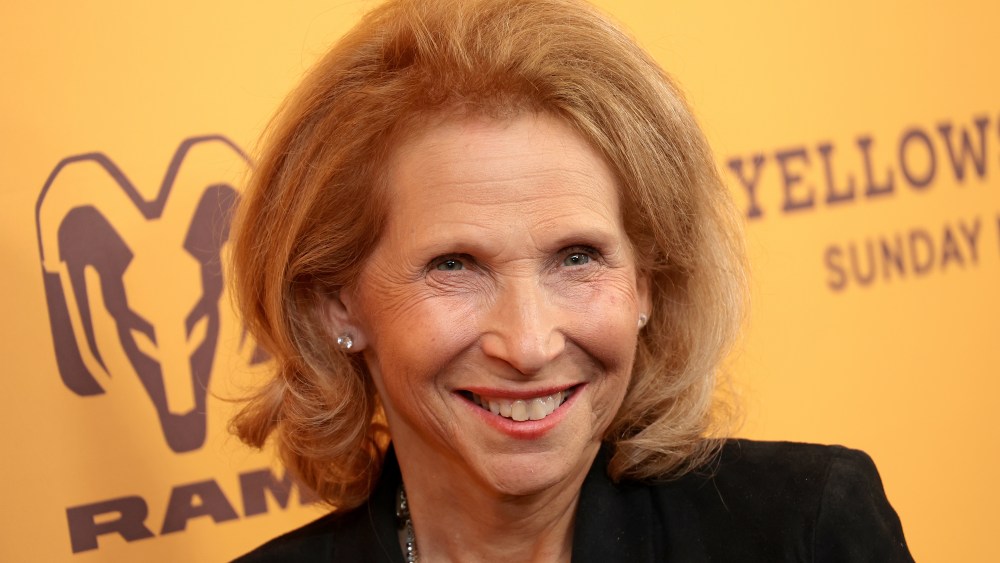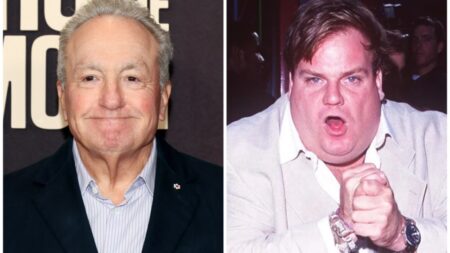Shari Redstone is no doubt familiar with “The Godfather, Part II.” It is, after all, one of the best-known films in the library of Paramount Global, the company she and her family control. Redstone probably doesn’t have time to watch the 1974 classic this week, but no matter. She’s living it.
“The Godfather, Part II” focuses on the difficult choices made by protagonist Michael Corleone, who opts to preserve his family’s illicit business empire instead of tending to the needs of the actual members of his family. He spends all his time jockeying with rivals and fending off competitors, and in the process loses his spouse and kills off his brother, whose weaknesses give enemies a chance to wreak havoc.
Redstone is no crime boss, but she faces similar wrenching decisions about doing what’s best for members of the Paramount family and what’s best for her own family business.
One of the most prized properties in the Paramount portfolio is the venerable CBS News magazine “60 Minutes.” The program has stood for months at the center of a flimsy but effective legal feint by President Donald Trump. According to the suit, filed in federal court in the Northern District of Texas in November 2024, “60 Minutes” tried to mislead voters by airing two different edits of remarks made in an interview with former Vice President Kamala Harris, then Trump’s rival for the White House. Legal experts believe the president has little standing. Intriguingly, the report, which aired in October, was this week nominated for an Emmy.
But the Trump suit — in which the president is seeking $20 billion in monetary damages from CBS — has remained an issue. Rather than fight a nuisance, Paramount has entered mediation with Trump’s attorneys, all as Redstone hopes to move closer to selling the company to Skydance Media — and pushing the deal past the review of a Trump-controlled FCC, which has also opened investigations into the “60 Minutes” matter. A consummated deal will infuse ailing Paramount with new capital as it seeks to adapt to an industry in which cable networks — a large part of the company’s portfolio — are being rendered obsolete by streaming services.
In such a unique situation, corporate leaders are more likely to favor the overall business, says Anant Sundaram, a professor at Dartmouth University’s Tuck School of Business who studies mergers and acquisitions. Once a deal is unveiled, Sundaram says, “the CEO wants to get it done yesterday, before so many factors that can kick in.” Paramount’s current situation, he adds, brings “the kind of uncertainty that a CEO hates, is petrified of.” And in the current era, when streaming has upset the economics of the media sector, Paramount may see Skydance as a more reliable bet than the linear viewership of “60 Minutes.”
“The bottom line is there is a sense that the regulatory process isn’t coming along as it should,” says Sundarum. “And the Trump lawsuit is a huge spanner in the works.”
Paramount and Trump attorneys are believed to have entered mediation, a process that will cast a shadow on Redstone’s tenure overseeing Paramount, which she took over from her father, Sumner Redstone. Shari Redstone pushed for a new combination of the CBS assets and those that were part of the company once known as Viacom, once housed in two separate companies. But the portfolio, which also includes the Showtime pay-cable outlet, MTV, Nickelodeon and the Paramount movie studio, has been weighed down by a large passel of cable properties that have been starved of investment over the years, and isn’t large enough on its own to outmaneuver digital giants like Netflix, Apple and Amazon. Redstone might have fared better if she sold off pieces instead of trying to put them all together.
Her seeming willingness to settle the “60 Minutes” matter has had other consequences as well. Last week, Bill Owens, just the third executive producer in the show’s nearly six decades on air, abruptly quit, saying he no longer had the freedom to run the newsmagazine in the best interests of its journalism and its viewers. On Sunday, correspondent Scott Pelley took the rare step of detailing this off-camera drama for viewers, telling them that Paramount had begun to take what staffers perceived as an undue amount of influence on “60 Minutes” editorial processes.
What is clear is the following: No “60 Minutes” segments have been spiked. But Paramount did install, partly at Redstone’s behest, a new layer of checks and balances in the form of a team led by Susan Zirinsky, the former CBS News president. Zirinsky was tasked with monitoring all of CBS News’ work, particularly after reports on “60 Minutes” and “CBS Mornings” tied to attitudes around the conflict in Gaza spurred criticism from advocates.
Redstone had conversations with various Paramount executives, among them George Cheeks, the Paramount co-CEO who oversees the CBS business, about certain “60 Minutes” stories, according to a person familiar with the matter. Redstone asked whether stories that could irritate Trump were correct and balanced, and inquired whether multiple stories that might draw Trump’s ire had to run on the same night, this person says. Two other people familiar with the “60 Minutes” editorial process say Zirinsky and her team were specifically tasked with examining stories tied concerning the Middle East and politics.
Redstone never issued any edicts about stories tied to Trump policies, says the person familiar with the situation, noting that the show has run such reports all season long. At this point, the person adds, with the current TV season drawing to a close, there is no reason to hold off on any stories the show has in the pipeline, as any acquisition by Skydance is not likely to be completed in that time frame.
This is perhaps the stuff of Aaron Sorkin TV series like “The Newsroom” or “Studio 60 on the Sunset Strip,” in which the people at the heart of a storied media property have to battle with the executives who run the platform that brings the content to millions. Paramount’s pending Skydance pact and the Trump suit have forced Redstone into an impossible choice: On the one hand, she risks tarnishing the image of a respected journalism outlet if Paramount reaches a settlement with Trump; on the other, if the deal doesn’t get done, the health of the company that delivers the show to its audience may be in peril.
At the end of “Godfather II,” Michael Corleone is haunted by the choices he has made, and thinks back to a simpler time. Whether Redstone is similarly tormented is something only she knows. As for the current moment in the media sector, it’s only going to get more complex.
— Todd Spangler contributed to this story
Read the full article here








